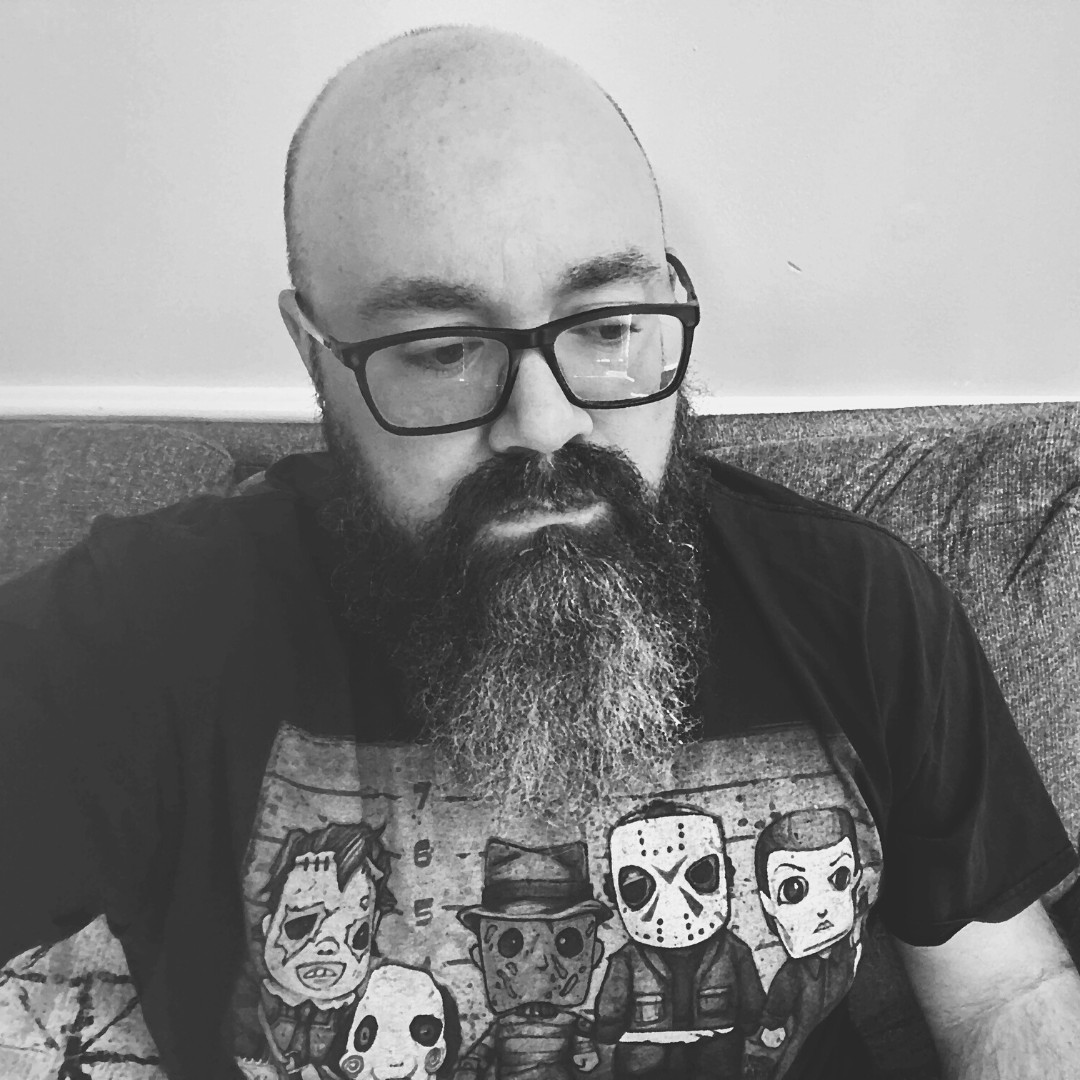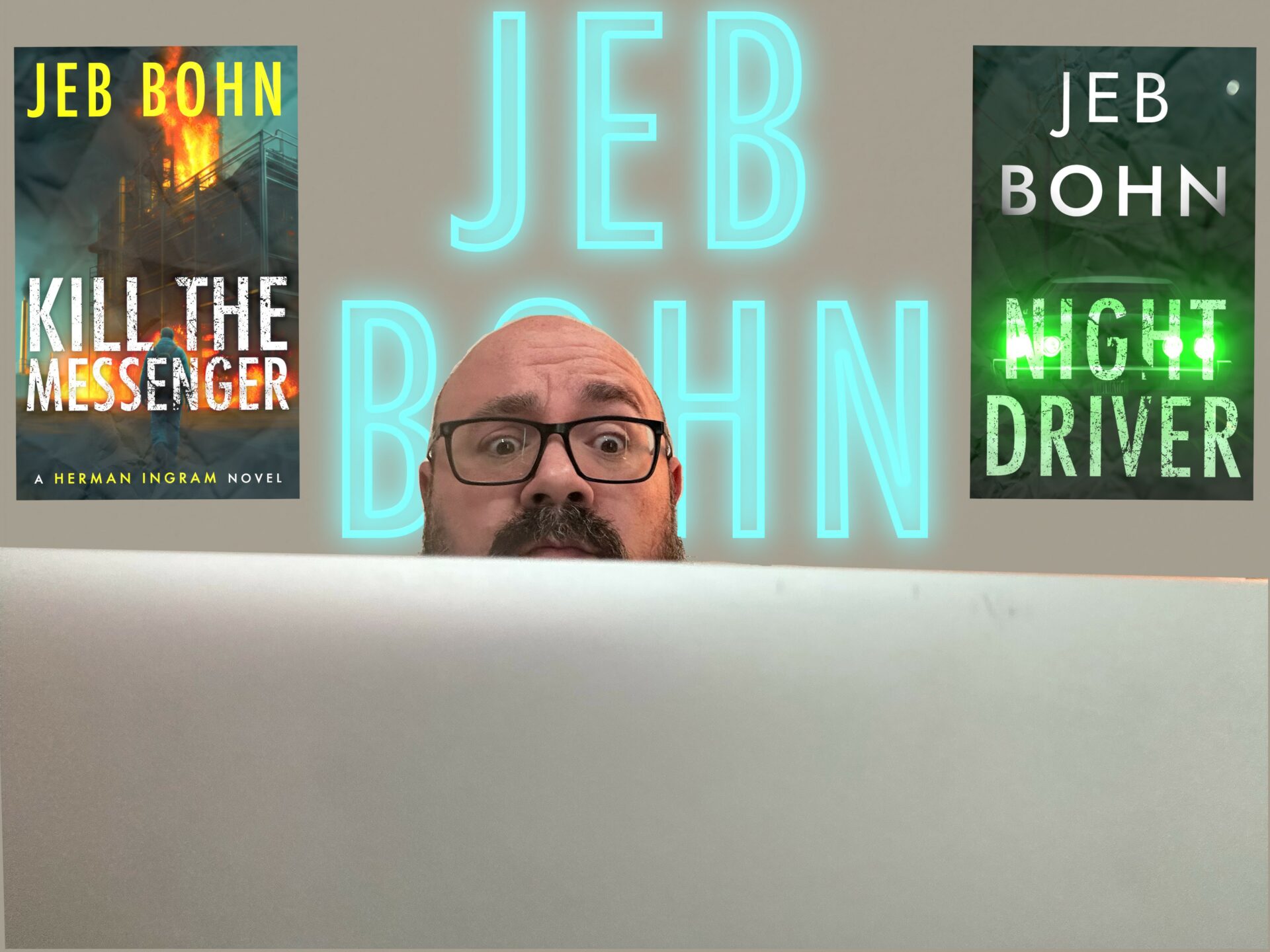We caught up with the brilliant and insightful Jeb Bohn a few weeks ago and have shared our conversation below.
Hi Jeb, thank you so much for opening up with us about some important, but sometimes personal topics. One that really matters to us is overcoming Imposter Syndrome because we’ve seen how so many people are held back in life because of this and so we’d really appreciate hearing about how you overcame Imposter Syndrome.
I don’t think that’s something that ever goes away, not entirely, at least. I remember seeing one of my books on someone’s recommended reading list, and it’s sandwiched between books from well-established authors, authors whom I have always enjoyed and looked up to. It was great to see, but the little voice in my head kept saying “One of these things is not like the other.” It’s something that’s hard to shake.
The biggest key is to trust in what you’re doing and trust in your talent. It’s easy to get praise and think “Wow, do I really deserve this?” At the end of the day, that’s a pointless question. Worse than that, it can be destructive. Speaking from my experience and dealing with all manner of anxiety, I just focus on what I do.
I know that I’m a talented writer and storyteller. I know that I do everything I can to put out strong, enjoyable books. That’s what I have control over. I do my best to entertain and, when someone reacts positively, I remind myself that it’s a good thing, that it’s some validation of what I do. You have to be comfortable with who you are and what you do and you have to be able to handle praise as well as criticism.
Most of all, you have to accept the fact that you do belong, that you’re out there doing what you love, and that people are taking notice.
Let’s take a small detour – maybe you can share a bit about yourself before we dive back into some of the other questions we had for you?
I love writing, and entertaining, I always have. The decision to pursue writing lifted an enormous weight off me. Over the past few years, the focus has been on creating books and building my name, both of which remain key goals as I move forward. I’m constantly looking into new ways to promote my work and reach new readers. It’s tough, because I hate to pull time from writing, but it’s an important component, so I strive to find the right balance.
With writing, it all starts with an idea. I have a notebook that I use to keep track of them, then I dive into each one to see what type of story I can create. That’s one of the most exciting parts about the entire process: witnessing the birth of an idea and bringing it to fruition. Once the book is finished and set to be published, I move on to the next one. I hate being idle, so I keep myself busy as much as possible, be it writing, adding to my website, looking into marketing avenues, or anything else.
Right now, I have two books in progress. One is a supernatural horror novella set in a small town during the mid-1990s. That era played a huge role in my adolescence and I’ve drawn a ton of inspiration from that fact. The other is a Western set at the turn of the 20th century. It was a fascinating time in American history. The Wild West was transforming. Law and order were being established and electricity was beginning to affect everyday life.
I’ve also delved into screenwriting, completing a pilot script for a proposed series based on a series of books I’ve written. That was an eye-opening experience because, while it’s still writing, it’s a totally new format for me. I did a lot of research, developed, edited, and re-shaped the script, and created a series bible to convey the primary themes of the story.
Looking back, what do you think were the three qualities, skills, or areas of knowledge that were most impactful in your journey? What advice do you have for folks who are early in their journey in terms of how they can best develop or improve on these?
Patience has to be at the top of the list. By nature, I am not a particularly patient guy, so that’s definitely something I’ve had to work on. All too often, people go into an endeavor—regardless of the industry—and expect instant results. Yeah, it can happen, but that’s not the norm.
Next, you have to have a clear plan in mind. Regardless of what you’re going after, you need to have an outline in place to follow. You’ll inevitably have to change some things as you grow and learn, but you have to have a plan of attack. Know your target audience, how you’ll reach them (website, social media, ad campaigns), and schedule your day accordingly.
The last thing is having the proper work ethic. A lot of people do well when they’re working for someone else and their schedule is set, and they have a daily list of tasks. When you work for yourself, you have to tighten down and make sure that you attack those things yourself. No one is going to force you to do anything, you have to be dedicated to putting in the time to make it work.
The wallpaper on my laptop is a series of quotes from authors. My favorite comes from Stephen King, and I’ll share it here. It’s specific to authors, though the principle behind it can apply to anything. Here it is:
“Amateurs sit and wait for inspiration; the rest of us get up and go to work.”
I think that quote sums up the mindset you need to succeed.
What would you advise – going all in on your strengths or investing on areas where you aren’t as strong to be more well-rounded?
It’s a balancing act. As an author, my ultimate goal is to tell compelling stories and entertain readers, so most of my time is spent writing and developing new ideas. Without that, I have nothing and everything else becomes moot.
The flip side is that I am fully independent, so everything involving business is solely my responsibility. From running the website to marketing and everything in between, several things need my attention. As such, I constantly work to re-enforce my knowledge of everything I handle regularly.
The key is acknowledging that I don’t know everything or have all the answers. I realize there are people out there with more experience than I do in these areas, and more than a few are gracious enough to share their insights.
You have to know your strengths as well as your weaknesses. Work on building up your weaknesses, but focus on what benefits you and your business, and schedule your time accordingly.
What I like to do—and, admittedly need to be better at—is looking at what I want to accomplish for the week, breaking it down, and scheduling it out. I know that I’m going to write every day, so I block out enough time to hit a daily word count. I’ll set time during the week to review my ads, see what’s working and what isn’t, and adjust them as I need to. The same goes for website updates, blog entries, and everything else. I cannot stress how important time management is, regardless of the field you’re in.
At the end of the day, you have to identify and prioritize what works for you and what ultimately advances whatever you do. Take all of those things and make them your strengths.
Contact Info:
- Website: https://www.jebbohn.net
- Instagram: https://www.instagram.com/thatwriterguyjeb/
- Facebook: https://www.facebook.com/jebbohnauthor
- Linkedin: https://www.linkedin.com/in/jeb-bohn-61a54865/
- Twitter: https://twitter.com/jebbohnauthor
- Youtube: https://www.youtube.com/jebbohn
- SoundCloud: https://soundcloud.com/jeb-bohn
- Other: https://www.amazon.com/stores/Jeb-Bohn/author/B00IS2SOAA?ref=ap_rdr&store_ref=ap_rdr&isDramIntegrated=true&shoppingPortalEnabled=true








